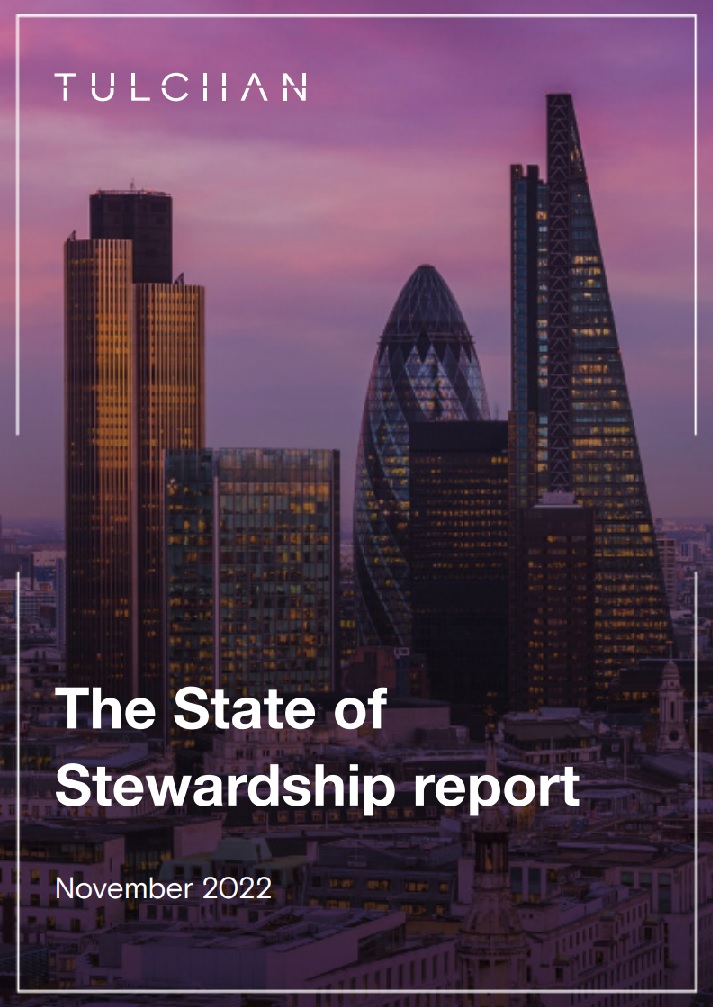Financial communications company Tulchan’s State of Stewardship report, capturing the views of 35 FTSE company chairs (26 from FTSE 100), makes depressing reading. “Many of the chairs interviewed for this report conveyed a sense of deep unease at what they feel is a lack of alignment between their objectives and those of their shareholders” writes Mark Burgess, a Tulchan Communications partner, in the foreword to the report. And whose fault is this? According to the commentary and the chair’s quotes scattered through the report, it appears to lie with the investors.
“The report suggests….that we should recognise that board are mostly constituted by good people trying to the do the right thing for the good of their stakeholders., and invites shareholders overseeing them to start by assuming positive intent, placing accountability for stewardship where it belongs;[1] in the boardroom and working together to improve conditions for growth”.
This is a bit like a sales and marketing director blaming customers for not buying their products or services. No, you need to design your offering to meet customers’ needs, and your advertising agency (Tulchan’s equivalent in the consumer marketplace) should shape your messages to so that they demonstrate how your offer will address those needs.
Shareholders don’t “oversee” boards. Boards are accountable to shareholders, and to other stakeholders too. Their companies have a duty to provide returns that are sufficiently attractive to shareholders in terms of the balance of capital growth, dividend income, risk, timing, and alignment with ethical and any other shareholder concerns. Folded into risk are concerns about consumer and supplier market movements, competition, government intervention, financial leverage, and investors’ portfolio composition[2]. Get that right, and investors will place a higher value on your shares. Get it wrong and investors will either sell or, if they believe other directors will provide returns (taking all the dimensions list above into account) that are more attractive to them, replace you. Boards need to think of their shareholders as customers and shape their offer to them as though they were customers.
[1] Tulchan’s punctuation
[2] Witness the challenge faced by Baillie Gifford needing to unweight its investment in Tesla as the share price took off
